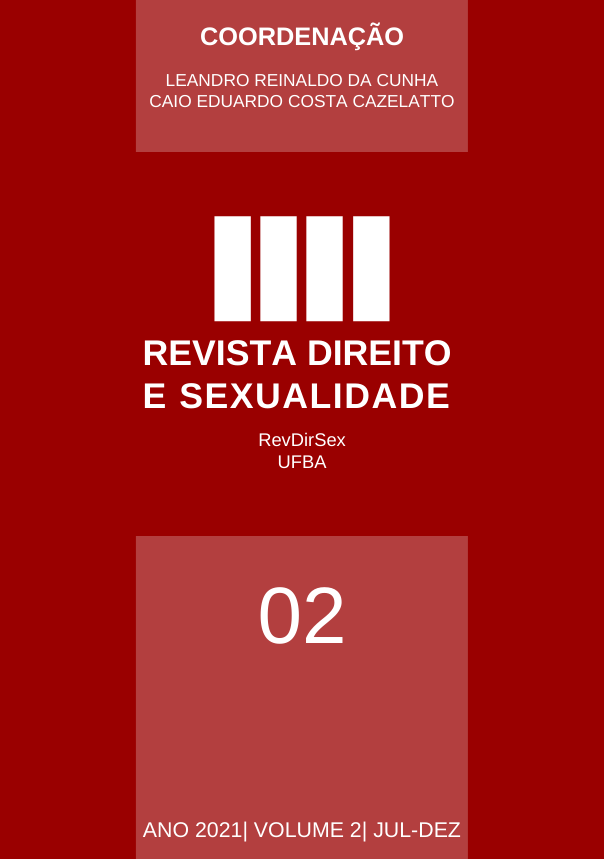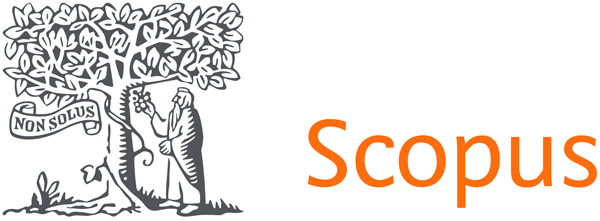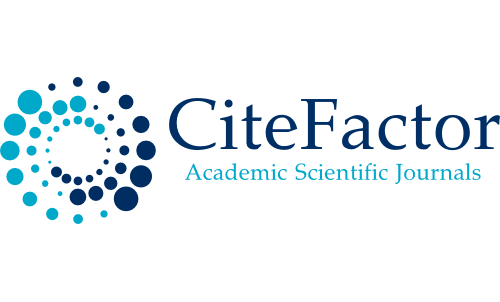DITADURA MILITAR NO BRASIL: A LINGUAGEM DE DIREITOS HUMANOS E O PROTAGONISMO MARGINAL DAS MULHERES
DOI:
https://doi.org/10.9771/revdirsex.v2i2.44927Abstract
Este trabalho investigou se, ou como, era possível observar um encontro entre o discurso de Direitos Humanos e a participação de mulheres na luta contra a ditadura militar no Brasil, utilizando a revisão bibliográfica como metodologia. Observou peculiaridades inerentes à realidade do feminismo da época, esbarrando em questões internas e externas, marcadas pelos papéis de gênero e pelo imaginário social construído em torno da mulher. Encontrou na luta pela anistia o encontro entre o discurso de Direitos Humanos e o movimento feminista, no ponto em que ambos deixaram de lado reivindicações próprias em prol de um bem maior: a derrocada do regime ditatorial.
Downloads
References
BRASIL. Lei Maria da Penha. Lei nº 11.340, de 7 de agosto de 2006. Brasília, DF.
COSTA, Albertina de O; et all (org.). Memória das mulheres do exílio. Rio de Janeiro, Paz e Terra, 1980.
GRECO, Heloísa, Dimensões Fundacionais da Luta pela Anistia. Tese de Doutorado em História. Faculdade de Filosofia e Ciências Humanas da Universidade Federal de Minas Gerais, Belo Horizonte: 2003.
MERLINO, Tatiana; OJEDA, Igor, orgs: Direito à memória e à verdade: Luta, substantivo feminino. Tatiana Merlino. São Paulo: Editora Caros Amigos, 2010.
MOYN, Samuel. The last utopia: human rights in history. Cambridge, MA: Belknap. Press of Harvard University Press, 2010.
PEDRO, Joana Maria. Narrativas fundadoras do feminismo: poderes e conflitos (1970-1978). Rev. Bras. Hist., São Paulo, v. 26, n. 52, p. 249-272, dez. 2006. Disponível em http://www.scielo.br/scielo.php?script=sci_arttext&pid=S0102-01882006000200011&lng=pt&nrm=iso. Acesso em 18 jan. 2021.
______. Narrativa do feminismo em países do Cone Sul (1960-1989). In: PEDRO, Joana Maria; WOLFF, Cristina Sheibe. Gênero, Feminismos e Ditadura no Cone Sul. Florianópolis: Ed. Mulheres, 2010. p. 115-137.
RIDENTI, M. S. As mulheres na política brasileira: os anos de chumbo. Tempo Social, [S. l.], v. 2, n. 2, p. 113-128, 1990. DOI: 10.1590/ts.v2i2.84806. Disponível em: https://www.revistas.usp.br/ts/article/view/84806. Acesso em 31 out. 2020.
ROLLEMBERG, Denise. Exílio entre raízes e radares. Rio de Janeiro. São Paulo: Editora Record, 1999.
ROVAI, Marta Gouveia de Oliveira. O direito à memória: a história oral de mulheres que lutaram contra a ditadura militar (1964 - 84). Revista Tempo e Argumento, Florianópolis, v. 5, n.10, jul./dez. 2013. p. 108 - 132.
SARTI, Cynthia A. O início do feminismo sob a ditadura no Brasil: o que ficou escondido. XXI Congresso Internacional da LASA (Latin American Studies Association), The Palmer House Hilton Hotel, Chicago, Illinois, p. 12, set. 1998. Disponível em: http://biblioteca.clacso.edu.ar/ar/libros/lasa 98/Sarti.pdf. Acesso em 14 dez. 2020.
SCOTT, Joan. Gênero: uma categoria útil de análise histórica; tradução Guacira Lopes Louro. Paris: Editions Tierce, 1988.
TELES, Maria Amélia de Almeida. O protagonismo de mulheres na luta contra a ditadura militar. RIDH, v. 2, n. 2, p. 9-18, 2014. Disponível em https://www3.faac.unesp.br/ridh/index.php/ridh/article/view/173/97. Acesso em 31 out. 2020.
TELES, Amelinha; LEITE, Rosalina Santa Cruz. Da guerrilha à imprensa feminista: a construção do feminismo pós luta armada no Brasil (1975 – 1980). São Paulo: Editora Inter-meios, 2013.
Downloads
Published
How to Cite
Issue
Section
License
Copyright (c) 2021 ambos

This work is licensed under a Creative Commons Attribution-NonCommercial-NoDerivatives 4.0 International License.
- This Journal reserves the right to direct normative, spelling and grammatical alterations in original works, with the intention of maintaining the standard worship of the language, respecting the authors' style.
- The exclusive opinions by the authors are their sole responsibility.
- The licensing rights used by the journal are the Creative Commons Attribution 4.0 International License.
- Copyright belongs exclusively to the authors. Sharing (copying and distributing the material in any medium or format) and adaptation (remixing, transforming and re-adapting the original work for all purposes, including commercial) are permitted, provided that due credit is given for the initial publication in this journal.
- Authors are permitted and encouraged to publish and distribute their work online after publication, as this can increase the impact and citation of the published work (See The Effect of Open Access).













